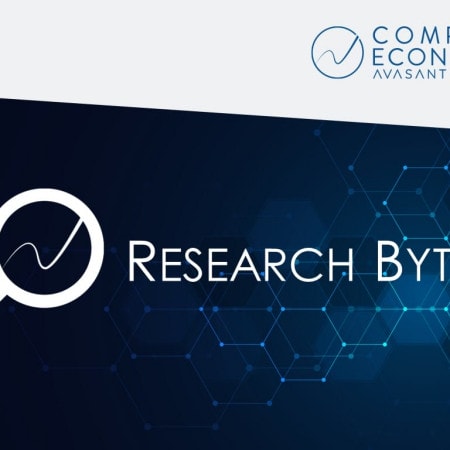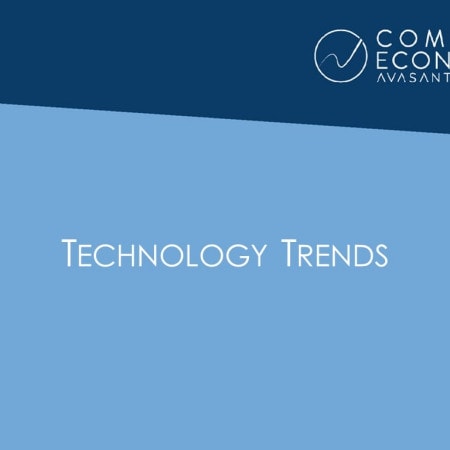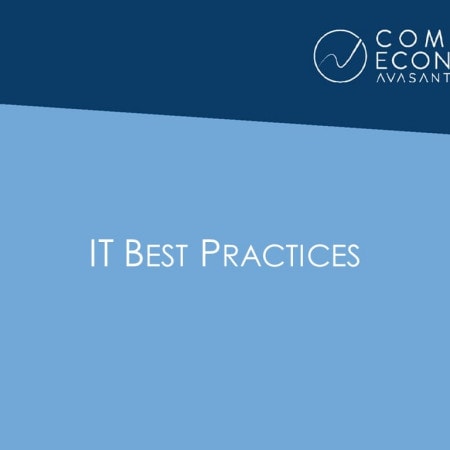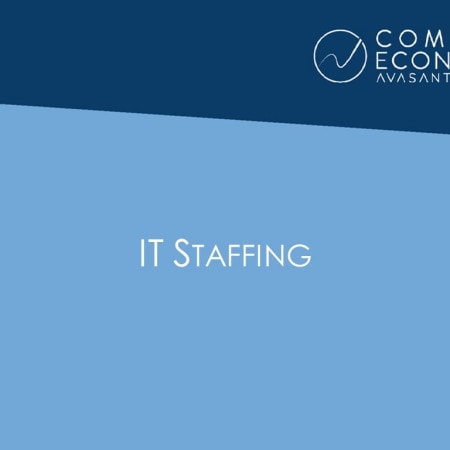-

IS Budget Allocations in Organizations with E-Commerce Applications in Place
Internet users are beginning to show their preferences. There has been a considerable amount of research accumulating from credible sources that indicate significant emerging patterns of Internet usage. We have also started to grasp what works and what flops on the Web.
September, 2002
-

In-Home Computer Use Research (August 2002)
The National Science Foundation (NSF) has analyzed publicly accessible sources of data for analyzing access to, and use of, IT in the home that could be used to generate statistically valid findings that could be generalized across the United States.
August, 2002
-

Oracle Internet Procurement
The supplies and services required to produce products and run a business typically account for over half of total costs. Any reduction in the cost of acquiring goods and services flows directly to the bottom line. Thus, streamlining the purchase process and trimming procurement costs has emerged as a target for many organizations attempting to improve profitability.
August, 2002
-

Edify Electronic Banking System 3.0
Industries that can empower their customers, employees, and partners with realtime access to information are surging ahead of their competition. Such a trend is enforced by advances in Internet technology, the introduction of collaborative applications, and self-service applications such as those offered by brokerage firms and travel agencies. In the banking industry, the challenges for deploying self-service applications are more stringent than anywhere else, with uncompromising demands for reliability, security, and 24x7 access. Applications that can meet these needs in mission-critical production environments are vital to financial institutions around the globe.
August, 2002
-

Defining Your Website Hosting Requirements
When identifying your website's hosting needs it is important to consider your company's goals. A wide array of hosting options is available for you to store, deliver, and receive information from customers and potential customers from around the world. Knowing your company's requirements will help you choose a Web hosting company with the proper "fit."
August, 2002
-

Virus Attacks Cost Organizations $17.1 Billion in 2000
Computer Economics has determined that the economic impact of virus attacks on information systems around the world amounted to $17.1 billion in 2000. Economic impact is comprised of the costs to clean viruses from networks, servers, and client systems; restore lost or damaged files; and the lost productivity of workers caused by system outages and downtime. The economic impact of virus attacks on information systems around the world amounted to $12.1 billion in 1999.
August, 2002
-

Wireless Technology to Boost Internet Usage
Internet users are increasingly turning to broadband wireless solutions as frustrations with dial-up and hardwired connectivity grow. Depending on location, many users have the option of selecting a wireless Internet link that offers speeds of 2 Mbps to 11 Mbps. The economy of wireless Internet is often attractive.
August, 2002
-

Click on the Dotted Line: Enforceability of "Click-Wrap" Agreements (Dec 2000)
The name "click-wrap agreement" describes contracts executed online without paper or physical signatures. Instead, one party proposes the terms, and the other simply "clicks" on a button indicating agreement. Typical uses of click-wrap agreements include establishing terms for the download and use of online services or software, or acknowledging a website's terms of use.
August, 2002
-

Streaming Content Online: Navigating the Hazards (Nov 2000)
As the number of websites with streaming content grows each day, and as consumers embrace the technologies which allow access, the challenge of protecting the content from unauthorized copying must be faced. As the online world watches the Napster saga, recognition of the seriousness of the dilemma has finally dawned.
August, 2002
-

Choice of Law in Cybyerspace
For companies doing business on the Web, it has become standard to state in the website's terms and conditions of use that users who have a dispute must pursue such claims within the state in which the company is located, and pursuant to that state's laws. From the company's perspective, this makes sense, as fighting lawsuits in fifty different states, and even overseas, could prove prohibitively costly and strategically undesirable. Consumers have argued that the system is unfair, however, as it requires a user to bring a claim far from home, even for a small dispute.
August, 2002
-

Sign on the Dot-Com Line (Aug 2000)
After years of talk, electronic signatures are finally becoming a reality. A new law goes into effect October 1, 2000 which will facilitate the use of electronic signatures to secure electronic transactions. The term "electronic signature" has become the generic name for what is actually a wide variety of means of authenticating the identity of parties to a transaction. One strength of the new law is that it is broad enough to embrace the plethora of electronic signature verification mechanisms, rather than promoting the use of just one.
August, 2002
-

The Ins and Outs of Online Ads (Jul 2000)
Until now, the rule for online advertisements and disclosures was that the same basic principles of fairness and honesty which apply to other media were equally applicable online. That policy lacked any detail and did not provide any substantive guidance to online merchants and advertisers. As a result of this gray area, unscrupulous advertisers exploited the ambiguity through online practices that ranged from misleading to outright fraud. The government has intervened in severe cases, but until recently, no affirmative policy existed.
August, 2002
-

Cybersquatters Lose Ground (Mar 2000)
One of the most difficult aspects of online business is dealing with disputes over domain names. Late in 1999, ICANN, the Internet governing body, finally created a uniform domain name dispute resolution policy. The policy replaces Network Solutions' old dispute resolution policy and requires that all domain name registrants be subject to a mandatory administrative proceeding to resolve certain domain name disputes.
August, 2002
-

It’s a Jungle Out There: The New Amazon E-Patent (Apr 2000)
Hot on the heels of its controversial "One-Click" patent, Amazon.com may have struck gold again with a newly issued patent relating to its system by which other websites send its customers in exchange for a commission. These so-called affiliate programs are a common technique used among e-commerce websites to increase traffic and product sales. The new Amazon patent could prevent Amazon's competitors from using the method, or as an alternative, enable Amazon to charge a license fee for its use. A third possibility is that Amazon will be reluctant to step up to enforce the new patent for fear that a court might find the patent invalid. Amazon spokespersons have thus far declined to tip their hands as to the company's intentions.
August, 2002
-

Rethink That Link: Can a Link Be Copyright Infringement? (Feb 2000)
Website operators prize their ability to provide a list of "useful links" or even to link directly to other locations containing information which may be helpful to visitors. A recent federal court ruling in Utah, however, has created a stir regarding this right, held sacred by denizens of the Internet. In an ongoing lawsuit, the court issued a preliminary injunction barring two critics of the Mormon Church from posting on their website the Internet addresses of other sites containing unauthorized copies of a Mormon text.
August, 2002

 Grid View
Grid View List View
List View